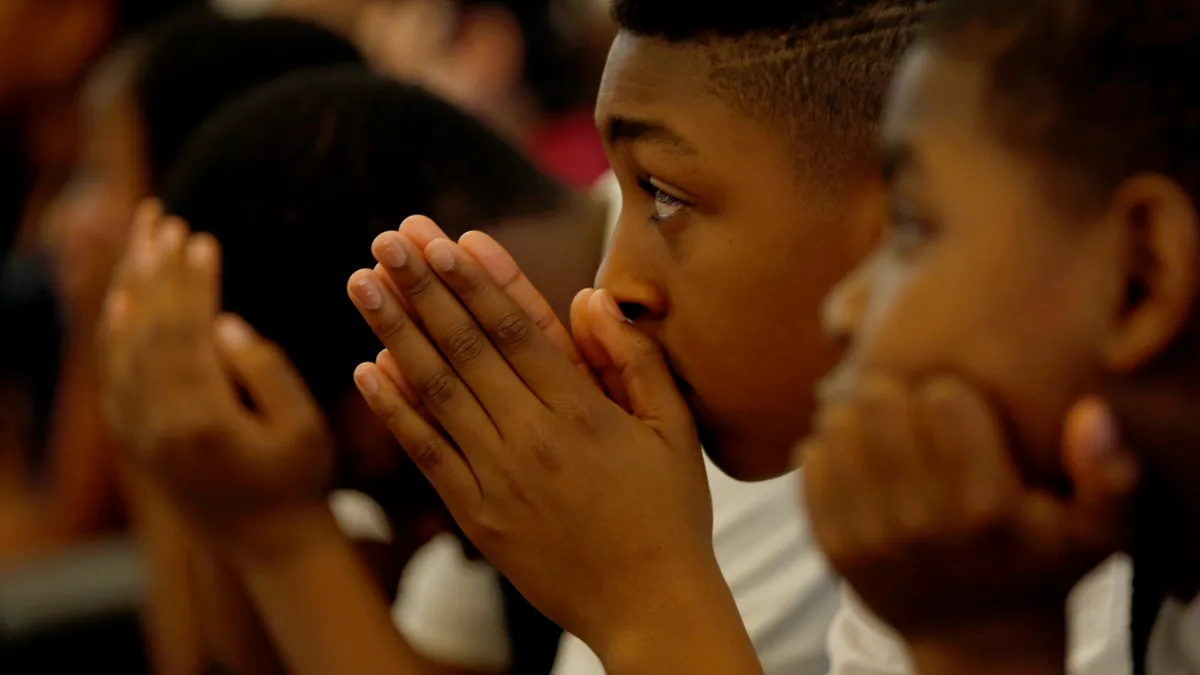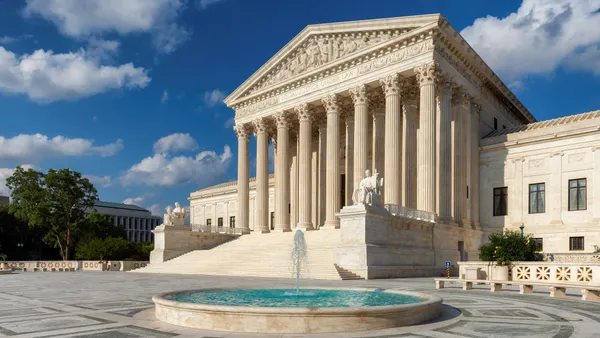Dive Brief:
- Educators continue to use simulations and reenactments of slave trading in classrooms, often citing a desire for students to get a sense of what enduring these experiences felt like — but experts, including those from the Southern Poverty Law Center’s Teaching Tolerance, say exercises can instead produce trauma, Education Week reports.
- Last month, a North Carolina 4th-grade teacher created an Underground Railroad-themed game similar to Monopoly, which sent students "back to the plantation" if they made too many errors, Ed Week reports. Also last month, a 5th-grade teacher in New York led a reenactment where black students played slaves who were auctioned off to their majority-white peers.
- When publicized, these kinds of exercises are often criticized and denounced, not all educators think they're wrong to use, and similar lessons can still be found online. Many, however, say educators need more professional development in teaching the history of slavery in the U.S., with some experts suggesting field trips and primary sources like The Historic New Orleans Collection's "Lost Friends" archives to add necessary context.
Dive Insight:
As administrators, it’s crucial when developing curriculum that lesson plans are culturally relevant, mindful of diversity, and also consider the emotional effect on students. Educators must also be thoughtful in their approach when teaching these moments in history.
At a base level, all educational tools brought into classrooms must be vetted, as even trusted sources can make controversial choices when developing material for students. Take McGraw-Hill, for example, which referred to slaves as “workers” in a World Geography textbook. The publishing company eventual issued an apology, and agreed to change the language in the digital and print editions of the textbook, according to USA Today.
The impulse to make history come alive for students can be a strong one — and those with nearby museums and other academic resources can do this by arranging for historical artifacts to be brought in for students to physically hold. But this impulse can also lead to educators trying to highlight key moments in history lessons by using reenactments or games, even those tied to slave trading or the Underground Railroad, Education Week reports. A game-based approach in particular runs the risk of trivializing these events, glossing over their dark realities.
Experts believe a better choice may be to look for other avenues when teaching these historic events, such as using original documents from that time, that can directly express “the experiences of enslaved persons,” according to the Southern Poverty Law Center report “Teaching Hard History; American Slavery.”
“The nation needs an intervention in the ways that we teach and learn about the history of American slavery,” the report said. “While that intervention will require some work by state educational departments, teacher preparation programs, school boards, textbooks publishers, museums, professional organizations and thought leaders, we are confident that change can come.”







 Dive Awards
Dive Awards





